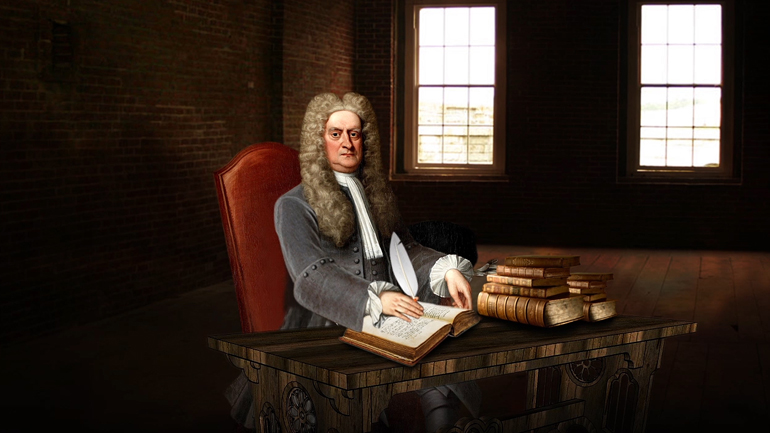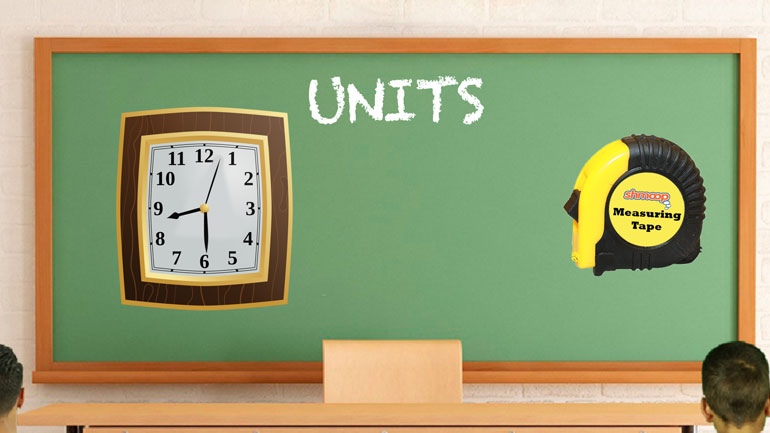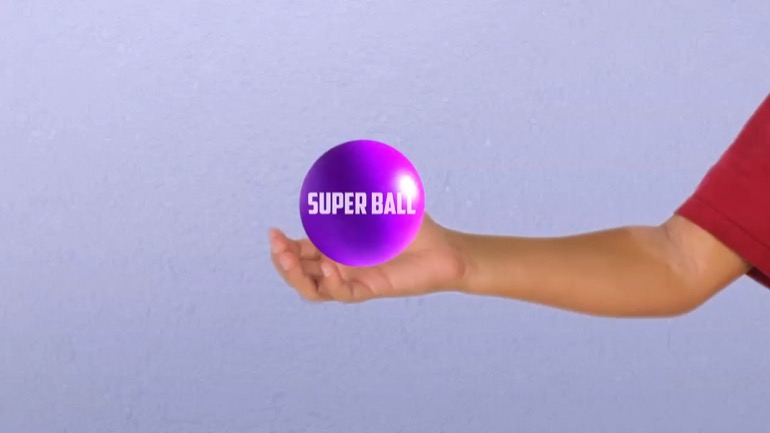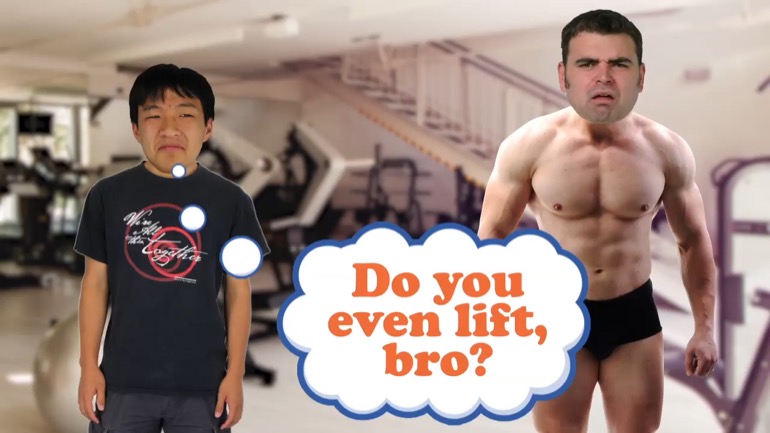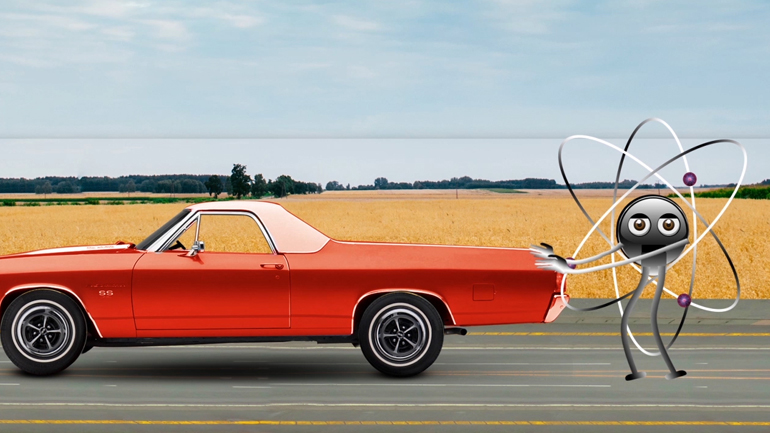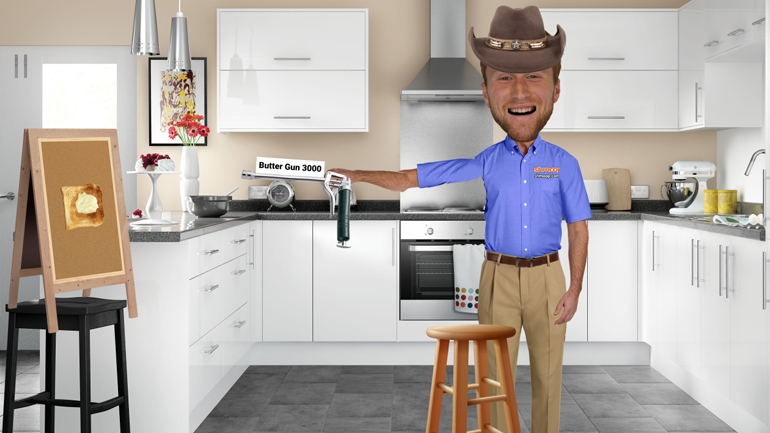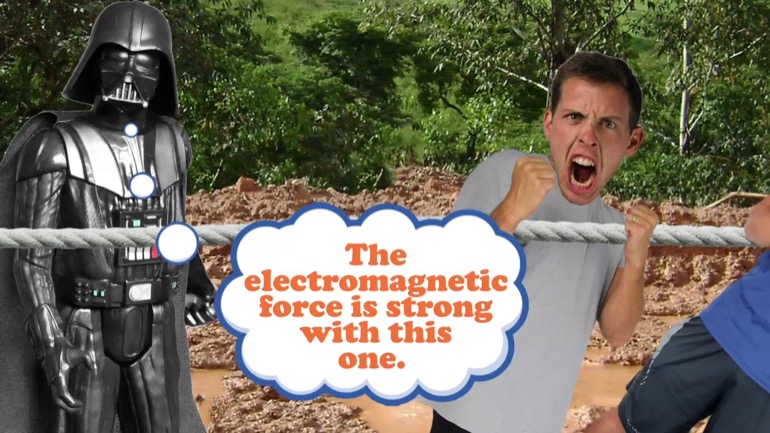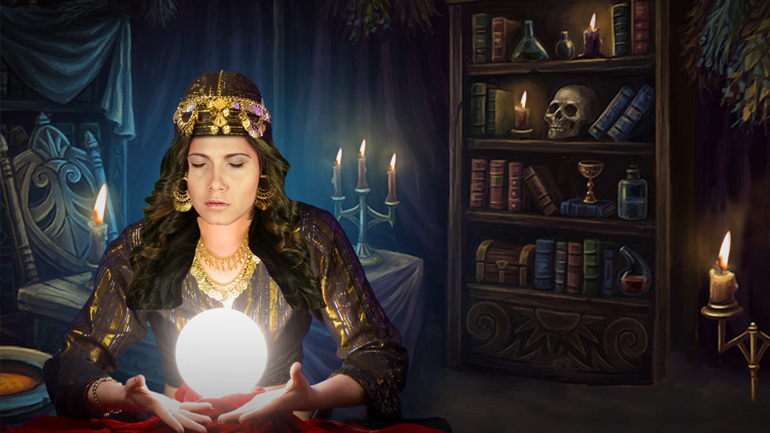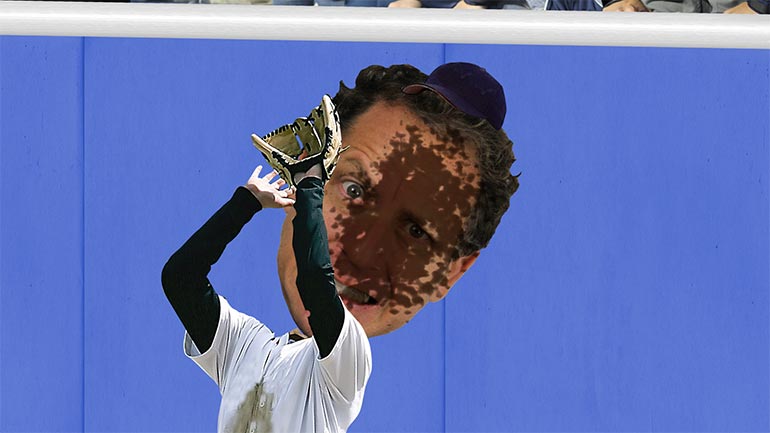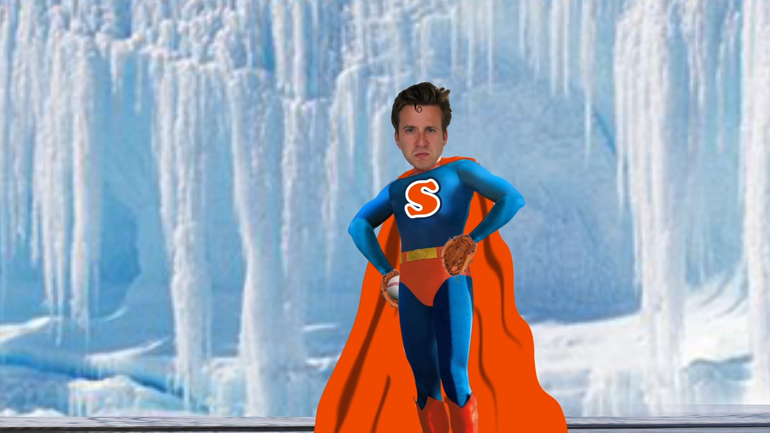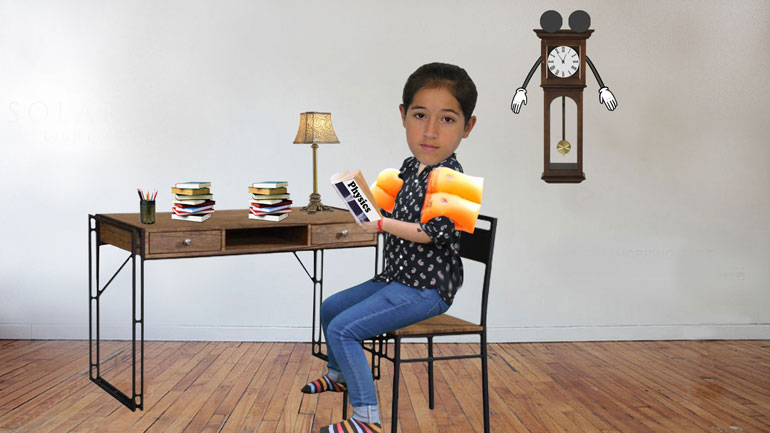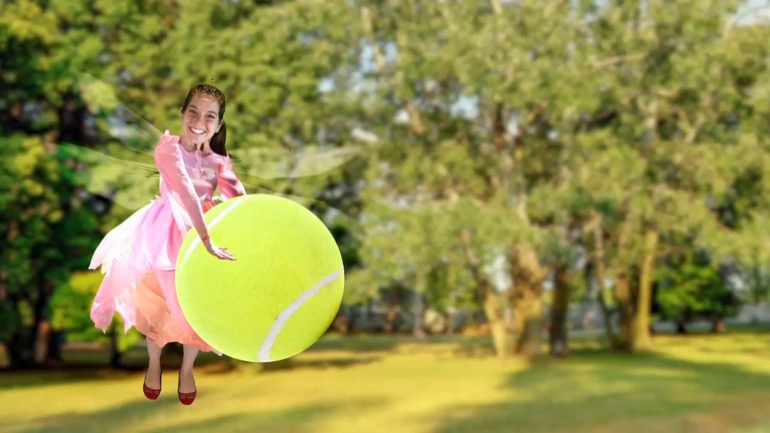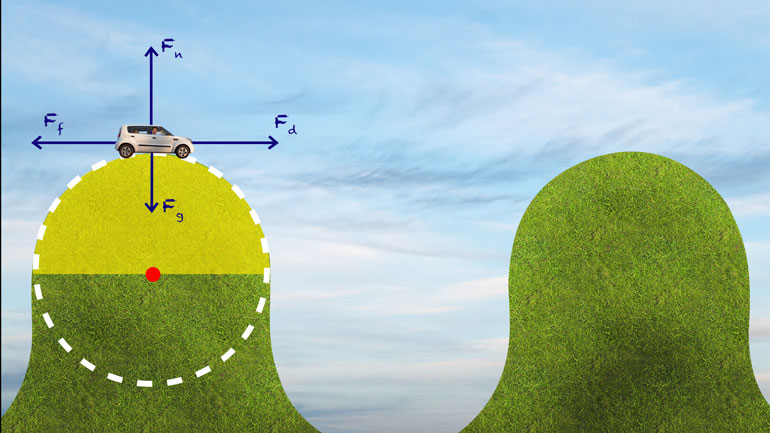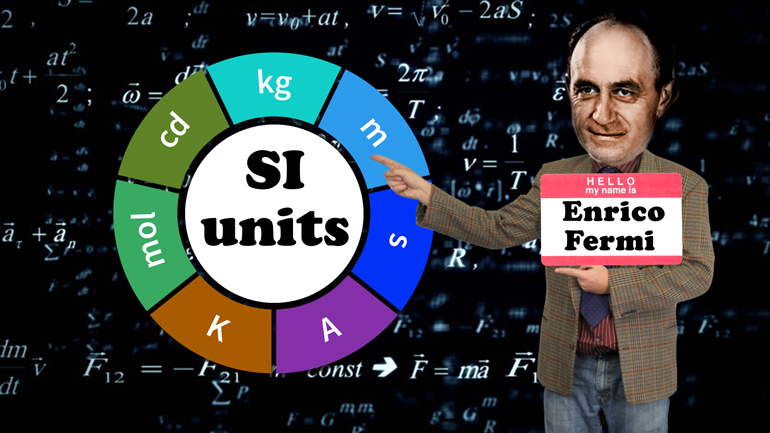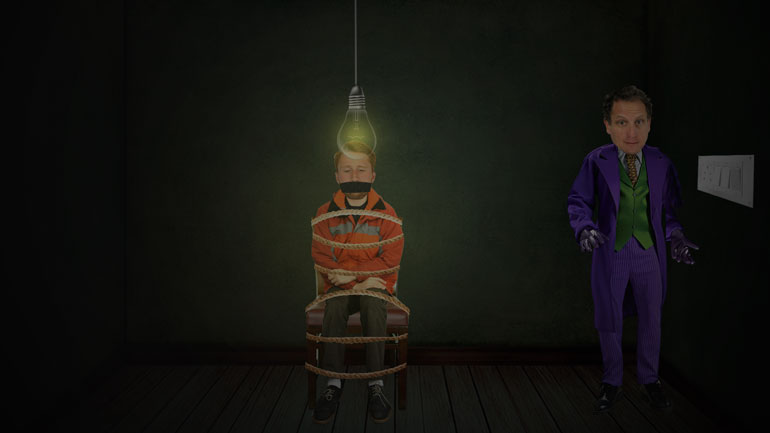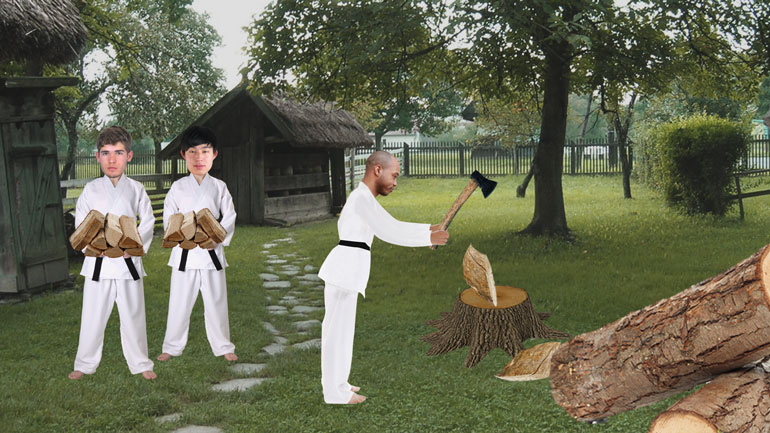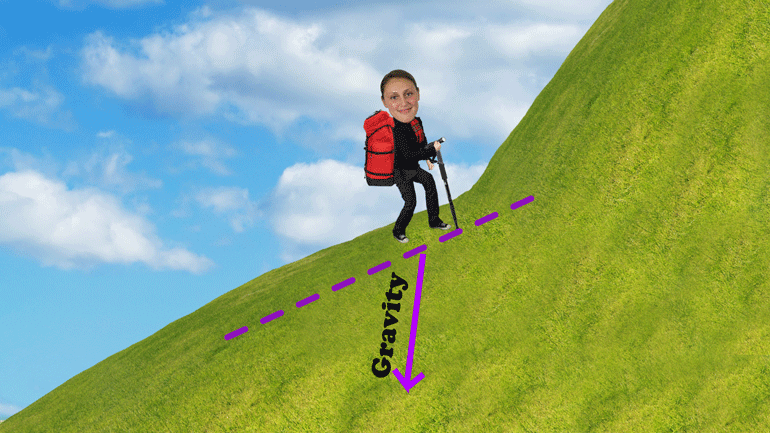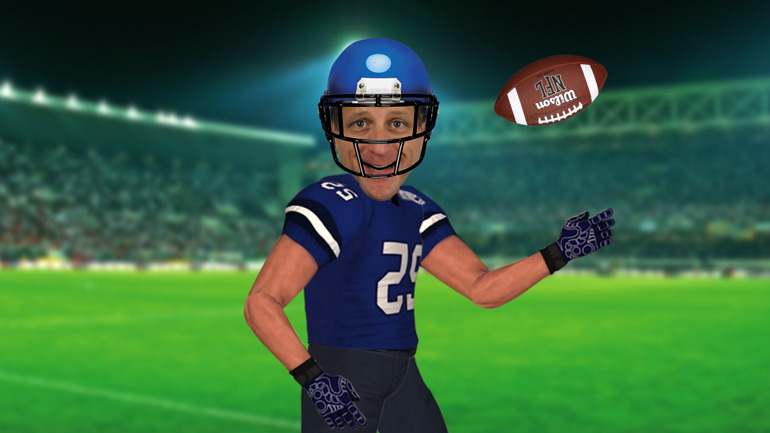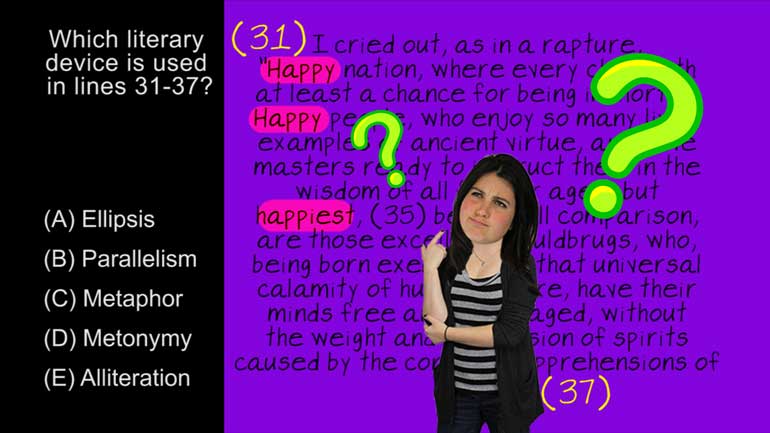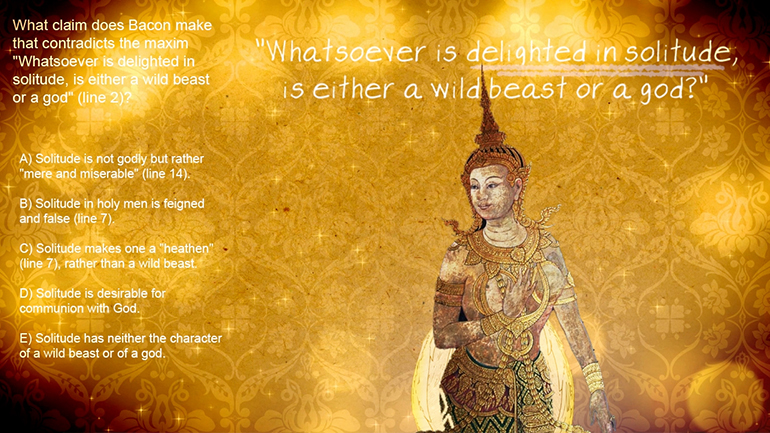ShmoopTube
Where Monty Python meets your 10th grade teacher.
Search Thousands of Shmoop Videos
Physics Videos 34 videos
Isaac Newton. Who was he? Why do we need to know about him? In a physics course, no less? Well, he's only the most famous physicist in history, and...
What are the basics of trigonometry? And why are we learning about this in a physics course? Both good questions. In this video, you'll learn about...
It's time to make our liters and meters work together. Enough of the bickering, right? In this video, we'll do some unit analysis, covering SI Unit...
Physics: Newton's Third Law: Actions and Reactions 35 Views
Share It!
Description:
Newton's Third Law states that every action has an equal and opposite reaction. Something to keep in mind when trolling online.
Transcript
- 00:03
Newton's third law actions and reactions....
- 00:46
Right now, you're being pushed around oh sure you might think you're just [Woman martial artist appears]
- 00:50
sitting there but oh no someone is giving you a shove every step you take
- 00:54
you're getting pushed back well I for one have had just about enough of this
- 00:59
who's the big bully? anyway it's our own planet actually
Full Transcript
- 01:03
Earth and it's time to give it what it deserves that was a real mistake so how [Woman performs karate chop]
- 01:12
exactly does our planet get away with pushing us around it's all because of
- 01:17
Newton's third law of motion which states that every action has an equal
- 01:20
and opposite reaction it sounds all deep and philosophical and if it wasn't about
- 01:26
physics you'd probably see it on Instagram or something some
- 01:29
black-and-white picture of the ocean with that quote superimposed but as [Instagram post appears on mobile phone]
- 01:35
we've seen over and over even though it seems like a simple statement actually
- 01:40
understanding what it means can be a little tricky if you've been following
- 01:44
along so far then you'll definitely recognize this thing if you haven't been
- 01:49
following along this is a free body diagram it lets us visualize all the [Free body diagram appears]
- 01:53
forces that are acting on an object this particular object is a box stuffed full
- 01:58
of karate trophies and it's being pushed down the sidewalk to our friend Gary's [Man pushing box of trophies]
- 02:03
house because Gary doesn't believe that a certain someone really is an awesome
- 02:07
karate master see that applied force there F sub a
- 02:11
that's an anonymous person who's doing the pushing normally we wouldn't worry
- 02:17
about the source of that applied force but when we're dealing with the third
- 02:21
law we recognize that the box is pushing back just as hard as the applied force
- 02:26
is pushing forward so how is the box moving then and why isn't the person
- 02:32
pushing going backwards the answer there is another object involved in the
- 02:36
scenario and it's a big one when we think about Newton's third law we see
- 02:42
that it pairs things up we can restate the third law and like this if object a
- 02:48
exerts force on object B then object B will simultaneously exert an equal force
- 02:53
on object a in the opposite direction that might help make things a little
- 02:57
clearer and this set up is what we call third law pairs objects A and B are a [Object A and B appear]
- 03:03
pair because they're both exerting forces on each other
- 03:06
the third law is all about how objects or masses interact with each other
- 03:10
so to understand motion we can look at one third law pair at a time so let's go
- 03:15
back to the box with the trophy's that they only give out to the best martial [Woman pushing box of trophies]
- 03:18
artists and I'm just going to admit that yes I'm the one pushing the box because
- 03:24
it's important for Gary to recognize greatness we have one third law pair
- 03:28
right there the box and me pushing the box but while my arms push against the
- 03:33
box my feet are pushing against the ground [Arrows pointing at feet]
- 03:35
and the ground well that's the whole planet just like the boxes pushing back
- 03:40
on me as hard as I'm pushing on the box the earth is pushing back up on my feet
- 03:46
just as hard as my feet are pushing down I'm able to generate more force with my
- 03:51
feet than the box is able to generate back at me which means that the box
- 03:55
moves forward the ground and my feet are another third law pair and really the
- 04:02
box and the ground are yet another pair we may think that since we have forces [Woman with box and forces appear]
- 04:07
that are equal and opposite they should cancel each other out and there
- 04:10
shouldn't be any motion but they don't cancel each other out because they're
- 04:14
not being applied to the same object if the box is at rest and I apply a force
- 04:19
of 50 Newtons to the trophy box that's enough to overcome it and
- 04:23
initial inertia and friction so it starts moving when the box is applying
- 04:28
50 Newton's of force back on me that's not enough force to overcome my own
- 04:32
inertia and friction so the forces are equal and opposite but they're working
- 04:36
on different objects which is why the motion resulting from those forces is [Woman discussing forces]
- 04:40
not the same we can express this law in a formula this equation says that the
- 04:46
force object A exerts on object B is equal to the negative of the force
- 04:52
object B exerts on object A since force is a vector one direction is positive
- 04:58
and the other is negative you might also see it written like this it's the same [Force equations appear]
- 05:04
thing so if you're pushing a lawn mower across your yard and you exert 75
- 05:09
newtons of force on the garden implement then it's exerting negative 75 Newtons
- 05:14
on to you and since we have force that means we can invite mass and
- 05:18
acceleration to the party per the second law of motion that's the thing about
- 05:22
Newton's laws well they each address separate concepts we can use them in
- 05:27
conjunction with each other to understand all kinds of motion one other [Newton appears]
- 05:31
thing to keep in mind as we think about third law pairs is that the forces
- 05:35
between the two objects will always be of the same type that means we're not
- 05:40
going to use contact force on that lawnmower and have it turn around and [Man pushing lawnmower]
- 05:44
use magnetic force on us, for one thing we're not made of metal so that wouldn't
- 05:48
even work but for another the third law is big on that whole equal and opposite
- 05:53
thing there is no way for contact force and magnetism to be equal now I'm going
- 05:59
to make a guess that you're sitting down right now okay sure you might be [Boy laying down looking at screen]
- 06:02
watching this in bed or while you're standing on the bus or you're being from
- 06:06
another planet and the rays of our yellow Sun have allowed you to fly but
- 06:10
we're still banking that your butt is on your seat and we've seen enough force
- 06:14
diagrams to know that we've got gravity pulling us down and normal force pulling [Woman watching shmoop video while sitting down]
- 06:20
us up totally in line with the third law right well actually no remember a third
- 06:25
law pair isn't two different forces it's two different objects that are exerting
- 06:30
force on each other we can't have one single object be it's own
- 06:34
third law partner that's against the law against Newton's law at least let's say
- 06:39
we've got a hunk of cheese on a table why cheese because we're hungry that's [Martial Artist standing in kitchen with wedge of cheese on a plate]
- 06:43
why here's our free body diagram for it nothing too complicated here
- 06:48
but FBD's are showing the forces acting on one single object this is our object
- 06:54
A basically what's our object B let's think about gravity first gravity is
- 06:59
acting on our cheese as it always does pulling it towards the centre of the
- 07:03
earth which means that the cheese and the earth are a third law pair here's
- 07:07
the diagram for this pair an object always creates gravity so just like [Diagram for third law pair appears]
- 07:13
Earth is pulling on the cheese the cheese is pulling on the earth too... To put
- 07:17
this in terms of our equation the downward force on the cheese F sub EC
- 07:22
equals the negative of the upward force on the earth F sub CE but that doesn't
- 07:29
explain the pairing of the normal force time to get diagramming again our third [Diagram appears]
- 07:34
law pairing for the normal force is the chunk of cheddar on the table the table
- 07:38
is pushing up with F sub TC and the cheese is pushing down F sub CT like we
- 07:45
just said the types of forces have to be the same in a third law pair since F sub
- 07:50
TC is the normal force from the chair F sub CT has to be the normal force from
- 07:56
the cheese yep that's right the downward force in this diagram isn't the force of [Downward force diagram of cheese]
- 08:01
gravity it's the normal force boy physics can make even a piece of cheese
- 08:05
sitting on furniture into a complicated situation let's look at another scenario
- 08:09
here at our dojo our sensei has us chop wood as part of our training it's [Man chopping wood]
- 08:14
probably just a coincidence that he has a fire pit in his backyard that he uses
- 08:18
every night what third law pairs are involved in this whole wood chopping
- 08:22
thing we can start with the most obvious that's the ax hitting the log those two
- 08:27
things are definitely exerting force on one another we'll call the force from [Man holding ax]
- 08:31
the ax to the log F sub AL and the force in the other direction from the
- 08:36
log to the axe F sub L A...but we're not done with the ax just yet
- 08:42
after all something is making it swing since our friend Darryl here is the one
- 08:47
making the ax move we'll call the force he exerts on the
- 08:50
axe F sub DA and the force the ax exerts on Darryl will be F sub AD now we
- 08:57
could keep going we could pair up the normal force of the stump holding up the
- 09:02
log and the log pushing down on the stump and we could include gravity [Man with ax and another man holding logs]
- 09:05
pulling on Darryl and Darryl pulling right back on the earth really we could
- 09:09
find a dozen different pairs in this scenario but the main action we have
- 09:13
here is Darryl swinging the ax which then hits the log so we'll stop with our
- 09:17
two pairs another part of our training our sensei likes us to do is where we're [Martial artists pulling a carriage]
- 09:21
basically services sled dogs it's meant to build up our core strength and to
- 09:25
teach us humility it's also meant to just get him around town you know this
- 09:30
sense they might just be a real jerk in any case what are the forces we have in
- 09:34
play here well we got students pulling the cart actually though we're not [Students pulling the sensei in a cart]
- 09:39
pulling directly onto the cart we're pulling on this metal shaft which
- 09:43
is attached to the cart so the shaft exerts a force on the cart and the cart
- 09:47
exerts a force on the shaft giving us F sub SC equaling the negative of F sub CS
- 09:57
when we've got the students exerting a force on the metal shaft and it's
- 09:59
exerting force right back on us since we're already using S for shafts
- 10:04
we'll use K for karate students to be consistent with our positive and
- 10:09
negative vectors since the shaft pulling on the cart was
- 10:12
a positive in the last equation the students pulling on the middle shaft [Students pulling middle shaft with positive symbol]
- 10:15
will also be positive here so F sub KS equals F sub SK there's one last thing
- 10:23
though our feet interacting with the ground to make this motion possible in
- 10:28
the first place again we could get very specific and detailed if we want to
- 10:33
going into friction and normal force and gravity but for now we're just going to
- 10:38
consider this a basic contact force between our feet and the ground we'll
- 10:42
make it into this formula F sub FG for feet to ground equals the negative of F
- 10:48
sub GF after chopping wood and pulling our
- 10:52
master around the last part of our training takes place on the tennis court [Students playing tennis]
- 10:55
basically our sensei slam tennis balls at us as hard as you can and we use our
- 11:00
skills to try and dodge them I think it's time for me to find a new dojo
- 11:04
this guy's a lunatic but we can figure out the physics before we leave our
- 11:09
sensei has a mass of 60 kilograms the racket is 1 kilo and the tennis ball is [Sensei with a racket and tennis ball]
- 11:15
0.1 kilograms the tennis ball exerts a force of 130 Newton's on the racket how
- 11:21
fast does the ball accelerate if we don't worry about gravity...Wait,
- 11:25
acceleration this is looking like a second law problem but actually it's a [Woman dodges tennis ball]
- 11:30
bit of both we'll go in numerical order in fact the second law tells us that
- 11:35
force equals mass times acceleration we know the mass of the ball and we know a
- 11:41
force but is it the right force yes and no we know the force that the ball
- 11:47
exerts on the racquet but we need the force the racket exerts on the tennis
- 11:51
ball ah but with the power of third law magic we can just flip this around F sub
- 11:59
BR equals negative of F sub RB since we were given our force from ball to racket
- 12:05
as a positive value the opposite force will be negative so the force the racket
- 12:10
exerts on the ball is negative 130 Newtons now we can just plug in our [Force equation appears]
- 12:15
numbers and get the solution negative 130 Newtons equals 0.1 kilograms times
- 12:21
acceleration divide both sides by 0.1 kilograms to solve for acceleration and
- 12:26
we get an answer of negative 1,300 meters per second squared
- 12:31
holy cow sensei what are you doing teaching karate you should be playing at [Sensei strikes tennis ball at student]
- 12:35
Wimbledon now that acceleration is pretty huge but
- 12:38
it's only going to last a fraction of a second once the ball is no longer in
- 12:43
contact with the racket the acceleration ends because there's no more force being
- 12:47
applied oh and that the negative sign there is just telling us that the
- 12:51
direction of motion is in the opposite direction of the force the ball exerted
- 12:55
on the racket so it turns out there's no way to avoid getting pushed around by [Woman martial artists performs a kick]
- 13:00
six no matter what we do we can't fight it because it'll fight us back just as
- 13:05
hard and as much as we'd like to kick that crap out of physics sometimes we
- 13:09
know that it's better to learn physics than to fight it just kidding!
- 13:13
sneak attack [Woman kicks physics book]
Related Videos
When you're about to marry the love of your life, not many things could stop you. However, finding out that your future hubby is keeping his crazy...
Here at Shmoop, we work for kids, not just the bottom line. Founded by David Siminoff and his wife Ellen Siminoff, Shmoop was originally conceived...
ACT Math: Elementary Algebra Drill 4, Problem 5. What is the solution to the problem shown?
AP® English Literature and Composition Passage Drill 1, Problem 1. Which literary device is used in lines 31 to 37?
AP® English Literature and Composition Passage Drill 2, Problem 1. What claim does Bacon make that contradicts the maxim "Whatsoever is delig...
